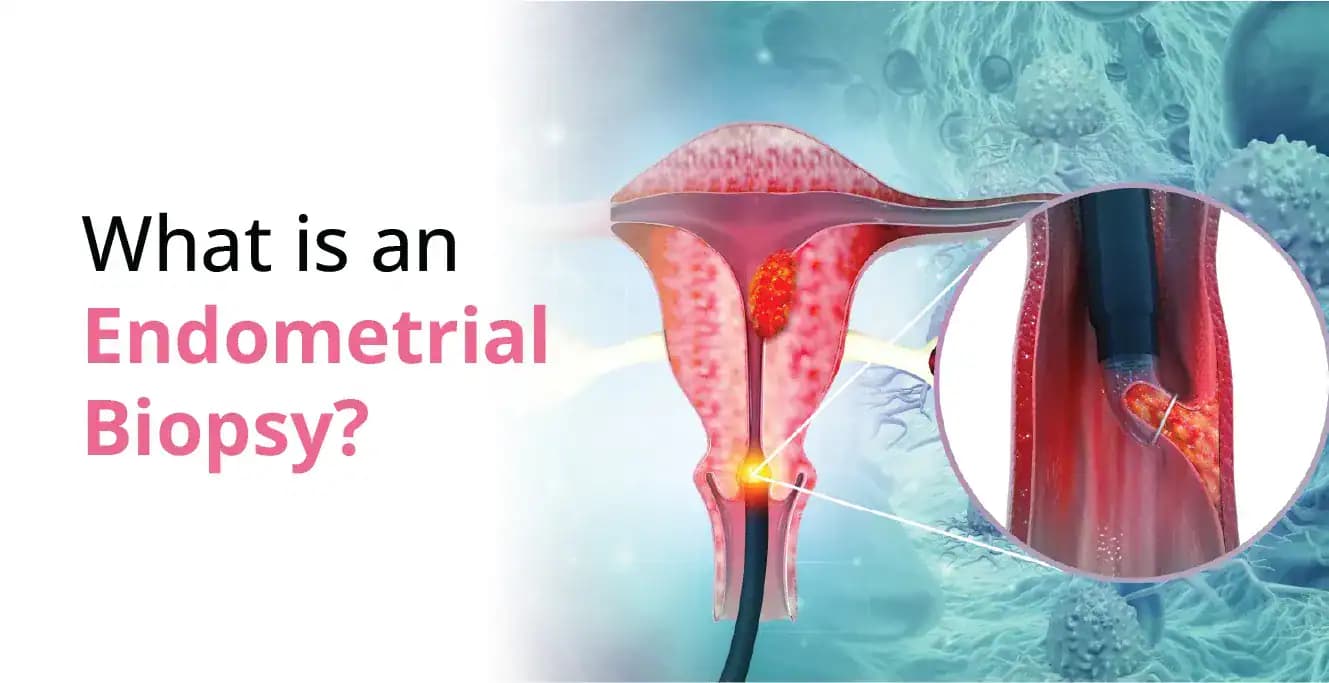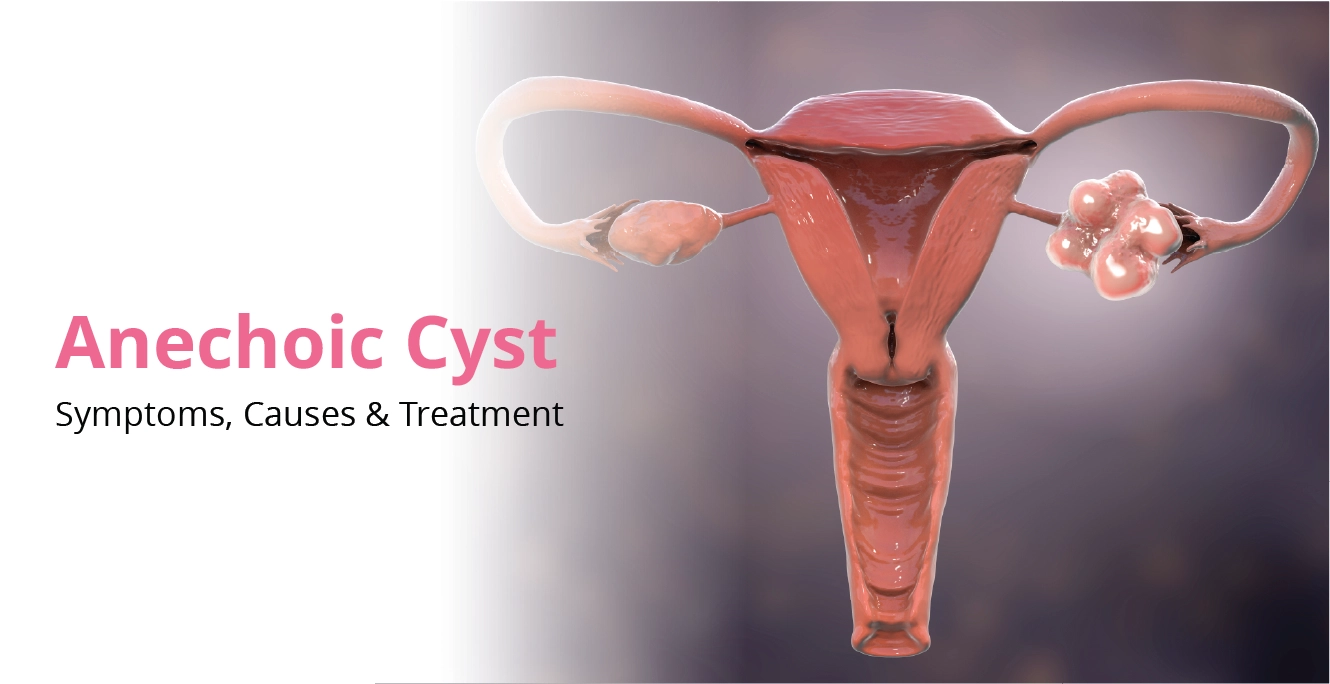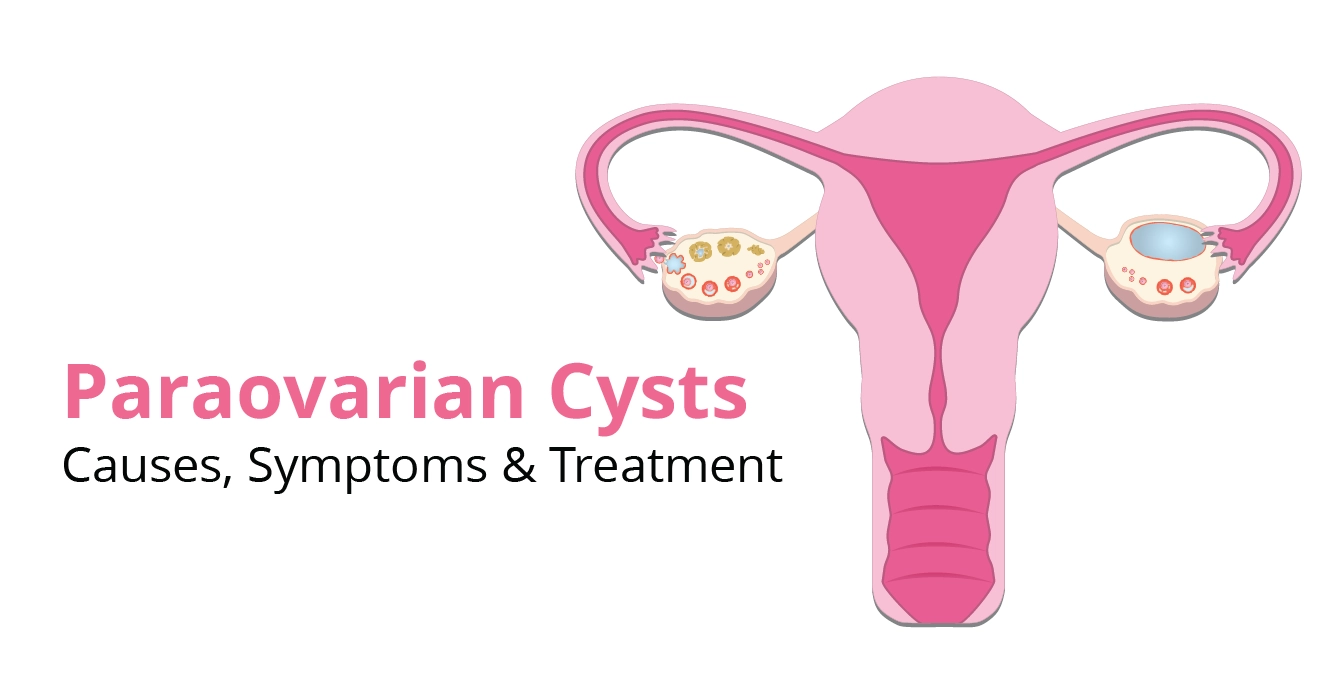
Endometrial Biopsy: Purpose, Procedure, and Risks

Table of Contents
- What is an Endometrial Biopsy?
- What to Expect During an Endometrial Biopsy Procedure?
- What is the Cost of an Endometrial Biopsy?
- Are There Any Risks Involved in Endometrial Biopsy?
- What Are the Signs of Infection After an Endometrial Biopsy?
- Is it Normal to Bleed After an Endometrial Biopsy?
- What Happens If Endometrial Biopsy is Abnormal?
- What Happens After an Endometrial Biopsy?
- How Long Does It Take to Recover From an Endometrial Biopsy?
- Endometrial Biopsy for Infertility
- Takeaway
Endometrial biopsy may sound worrying to many women, but it is a simple, quick and safe procedure. It gives important insights that help doctors know the health of the uterine lining. It is mostly recommended during fertility assessments to understand if the uterus is ready to support a pregnancy, and also guides further treatment.
This article will break down everything you should know about an endometrial biopsy in an easy-to-understand way so that you stay informed.
What is an Endometrial Biopsy?
- Meaning of endometrial biopsy:
An endometrial biopsy is a medical procedure in which a small sample of tissue is taken from the lining of your uterus. This lining is known as the endometrium. The sample is then examined under a microscope to check for any abnormalities in the cells or tissues. - Purpose:
This is a valuable diagnostic tool that helps your doctor determine if your uterine lining is healthy, responds properly to hormones, and is ready to support a pregnancy. - Who should opt for an endometrial biopsy?
This test is generally advised for women who experience irregular or heavy menstrual bleeding, postmenopausal bleeding, or difficulty getting pregnant despite multiple attempts.
What to Expect During an Endometrial Biopsy Procedure?
When you hear the word “biopsy,” it is natural to feel uneasy, but rest assured, the endometrial biopsy procedure is usually quick and does not require hospital admission. Here are the key steps involved:
- Preparation
You will be asked to lie down on an examination table, just like in a pelvic examination. The doctor inserts a speculum to gently open the vaginal walls, which allows access to the cervix.
- Cleaning and Numbing (if needed)
Your cervix may be cleaned with an antiseptic solution. Sometimes, a local anaesthesia is administered to ease discomfort.
- Collecting the Sample
A thin and flexible tube–pipelle, is inserted into the uterus through the cervix. The doctor then uses gentle suction to collect a small sample of the endometrial tissue.
- Completion & Examination
The procedure lasts for about 5–10 minutes. Once done, you can go home right away. The sample will be checked in the lab for any abnormalities.
Some women describe endometrial biopsy pain as mild to moderate cramping, similar to period cramps, while others feel only slight discomfort. Taking a mild pain reliever beforehand can help, but always consult your doctor first. Do not self-medicate.
What is the Cost of an Endometrial Biopsy?
The endometrial biopsy cost on average falls between ₹3,000 to ₹10,000, depending on various factors such as your location, the healthcare facility, and whether any additional tests are performed. Diagnostic centres or hospitals using advanced technology may have a slightly higher cost due to the precision and expertise involved
Are There Any Risks Involved in Endometrial Biopsy?
Like any medical test, an endometrial biopsy comes with a few potential risks, though serious complications are rare. Common endometrial biopsy side effects include:
- Mild cramping during or after the procedure
- Light bleeding or spotting for a few days
- Temporary dizziness or discomfort
The chances of infection, heavy bleeding or injury to the uterine wall are very rare. Your doctor will take every precaution to avoid any complications. If you experience anything unusual like severe abdominal pain or fever, after the biopsy, you should immediately contact your doctor.
What Are the Signs of Infection After an Endometrial Biopsy?
While infection is uncommon, it is important to recognise warning signs early. Inform your doctor if you notice:
- Fever or chills
- Foul-smelling vaginal discharge
- Persistent or worsening lower abdominal pain
- Heavy bleeding beyond mild spotting
These could indicate a uterine infection that needs medical attention. Most infections, if detected early, can be easily treated with antibiotics.
Is it Normal to Bleed After an Endometrial Biopsy?
It is completely normal to experience a little bleeding or spotting after a biopsy. This happens because the uterine lining gets gently scraped during the procedure, so light discharge for a few days should not worry you. However, if this bleeding is prolonged and heavy, lasting for more than 3-4 days or is accompanied by pain or fever, consult your healthcare provider. Do not use tampons or have intercourse during this period to prevent irritation or infection.
What Happens If Endometrial Biopsy is Abnormal?
An abnormal biopsy does not always mean something serious, so do not panic and follow your doctor’s advice. Here is what the findings could possibly mean:
- Hormonal imbalance: The uterine lining may not be responding properly to hormonal changes, which can be managed with medication.
- Infection or inflammation: Infections can also be the reason for endometrial changes and can be resolved with antibiotics.
- Precancerous or cancerous cells: In rare cases, abnormal results may indicate endometrial hyperplasia (thickening) or cancer. Your doctor will suggest further testing or treatment options.
In cases of endometrial biopsy for infertility, abnormal results may indicate issues with the uterine lining’s ability to support implantation, guiding your fertility treatment plan.
What Happens After an Endometrial Biopsy?
Most women are able to resume normal activities the same day after the procedure. You might experience:
- Mild cramping for a few hours
- Light spotting for 2-3 days
Your doctor may recommend using sanitary pads instead of tampons and avoiding intercourse for at least 48 hours.
You can expect the biopsy results within a week or two. The doctor will then review them with you and discuss the next steps, depending on your condition.
How Long Does It Take to Recover From an Endometrial Biopsy?
Recovery after an endometrial biopsy is generally quick. Most women feel back to normal within a day.
Here are a few recovery tips to help you feel better faster:
- Rest for a few hours post-procedure.
- Use mild painkillers if cramps bother you.
- Avoid heavy exercise for a day or two.
- Follow your doctor’s advice about resuming normal activities or intercourse.
Endometrial Biopsy for Infertility
An endometrial biopsy is an important diagnostic tool for women struggling with infertility. It helps analyse the thickness of the uterine lining and suggests if it is ready for embryo implantation.
Sometimes, hormonal issues or infections affecting the uterine lining can interfere with conception. By identifying these problems early, doctors can create fertility treatments more effectively whether it is adjusting hormonal medication or planning assisted reproductive techniques like IVF.
Takeaway
Many women get worried on hearing about an endometrial biopsy from their doctor. The procedure might sound intimidating at first, but it is a safe, simple and valuable diagnostic tool that gives important information about your reproductive health and guides your doctor in appropriate treatment planning.
Whether it is used to investigate abnormal bleeding or recommended as part of an infertility evaluation, you should not panic. If you are still concerned about the endometrial biopsy pain, recovery, or cost, you can consult with our fertility specialists at Birla Fertility & IVF. They will help you understand the process and ensure your comfort every step of the way.
Our Fertility Specialists
Related Blogs
To know more
Birla Fertility & IVF aims at transforming the future of fertility globally, through outstanding clinical outcomes, research, innovation and compassionate care.
Had an IVF Failure?
Talk to our fertility experts

 Our Centers
Our Centers

















